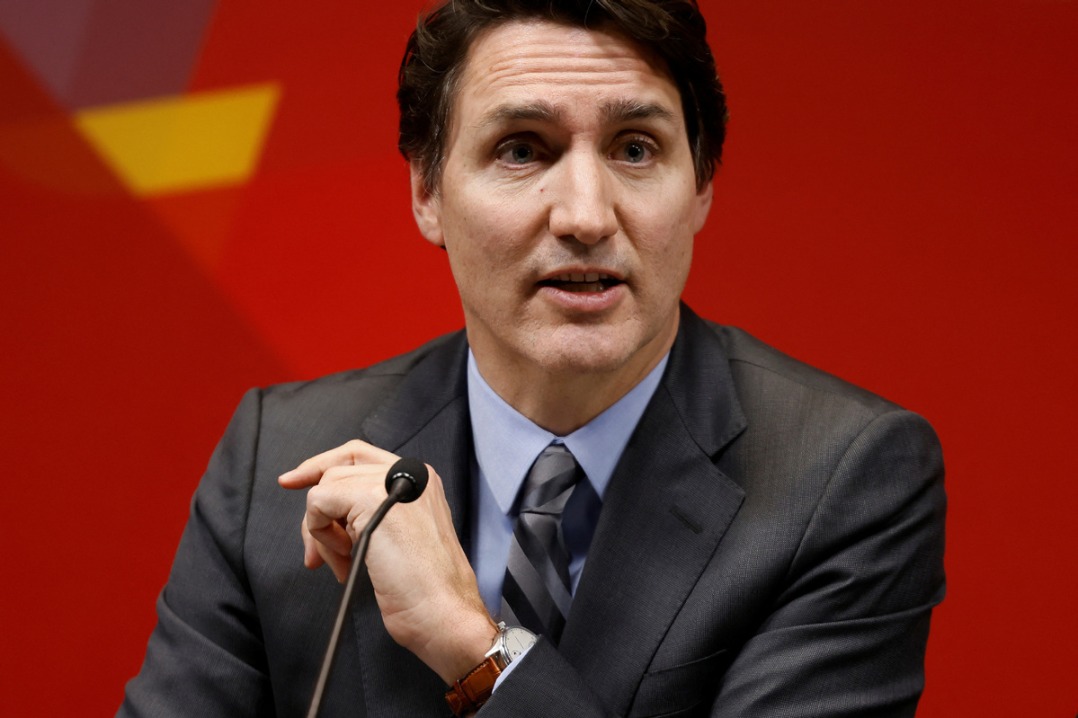Dream of renewal has long driven CPC's vision for nation


July 1 saw spectacular celebrations for the 100th anniversary of the Communist Party of China. Founded from a small gathering in Shanghai in 1921, the Party has grown to over 95 million members and has transformed China from an impoverished agrarian nation into the world's second-largest economy-an industrial, financial and technological powerhouse.
But the Party is poorly understood by the rest of the world, with many people in Western countries often assuming that they truly know what is "best "for China and seeking to impose their ideological vision upon the country.
These dogmatic interpretations fail to appreciate the rise and legitimacy of the CPC in its cultural, historical and social context.
In practice, the CPC has achieved such success because of its ability to pursue a dream of national renewal, which captures the sentiment and understanding of the Chinese people. This vision of national renewal sees China becoming a modern socialist country that is prosperous, strong, democratic, culturally advanced and harmonious by the time the People's Republic of China celebrates its centenary in 2049.
That is why the anniversary was so enthusiastically received.
To understand China in the present, we must first understand its past.
The rise of the Communist Party of CPC coincided with a series of immense political and social upheavals in China dubbed "the century of humiliation". The declining Qing Dynasty (1644-1911) had failed to modernize the country and found itself on the receiving end of foreign military aggression, with Western powers seeking to impose their will on China and exploit its markets. Territories such as Hong Kong and Taiwan were taken, or Western laws were imposed in others, such as parts of Shanghai, Qingdao, Shandong province, and Tianjin.
These traumatic experiences produced ideological upheaval, including anti-imperialist student protests in Beijing in May 1919, and produced a thirst for change in young people and a hope that China could renew itself, that it would become modern, strong and prosperous and subsequently be able to resist the encroachment of other countries.
This is what created the CPC, and this is what has long driven its vision over the course of a century. Communism was seen as an ideology that could effectively modernize the country, liberate Chinese peasantry and offer hope for the future.
The CPC, in its 100-year history, has passed through many struggles. It faced persecution from the Kuomintang government, pursued the grueling Long March and later fought the Japanese occupiers, yet it was the hope of national liberation that kept it resilient-the thinking being that China could be sovereign and rejuvenate itself.
The year 1949 saw the Party establish the People's Republic of China, laying the foundation of China as a modern country in the wake of the chaos of the old Republic under the poor governance of the KMT. The CPC navigated crises and pursued the path of "socialism with Chinese characteristics", which enabled its reform and opening-up, heralding an economic transformation so huge that it might be described as the world's largest rags-to-riches story.
The July 1 speech by Xi Jinping, general secretary of the CPC Central Committee, focused on this historical background. The Party's centennial history is viewed in the light of the reversal of "the century of humiliation"-China is no longer weak, vulnerable, impoverished or helpless, but renewed, sovereign and moderately prosperous and, unlike in times of old, will not be bullied again.
The Party has tied itself to China's own identity and trajectory, and this is why it finds such great support. A recent Harvard University survey found domestic approval of the Party at 95.5 percent, with many respondents saying the country's standard of living has been transformed dramatically.
The West does not understand this, not only because it has a dogmatic view of what China "ought "to be, and "ought" to be transformed into, but also because it has not understood the collective trauma of China's history and its dream to be a successful, stable nation again, as it had been for millennia.
In the words of the national anthem: "As China faces its greatest peril, from each one the urgent call to action comes forth. Arise! Arise! Arise! Millions of but one heart."
The author is a British political and international relations analyst.































